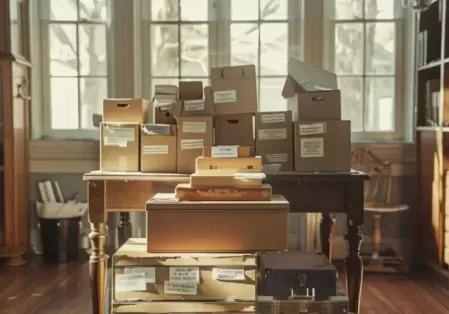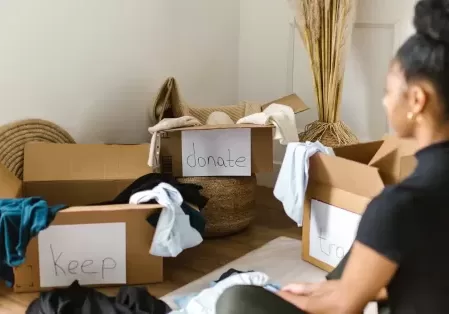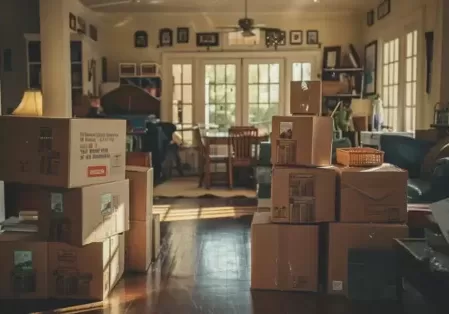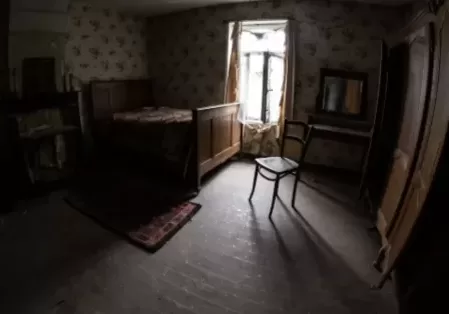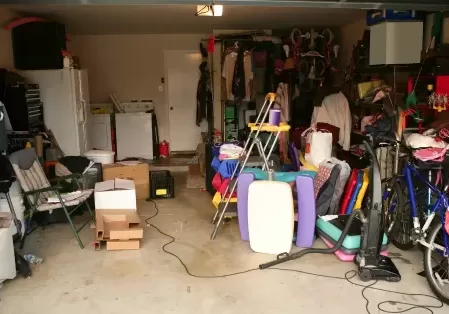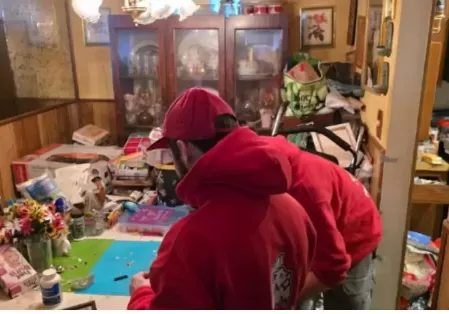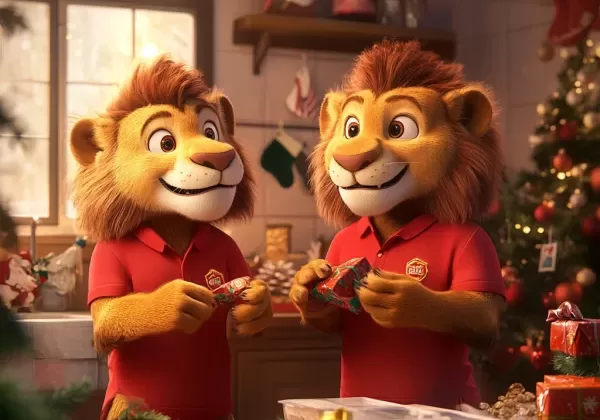What Happens to Estate Sale Leftovers & Who Buys Them?
Estate sales are a great way to liquidate assets from a home, whether you’re handling the belongings of a deceased loved one, relocating a family member to a senior living facility, or planning to downsize. These sales typically involve selling household items, furniture, antiques, and collectibles to interested buyers.
However, despite the best efforts to ensure a sale goes smoothly, not every item will sell. If you’ve hosted an estate sale, you may be left with unsold items that need to be handled. At this point, you may be wondering: What happens to estate sale leftovers? And more importantly, who buys estate sale leftovers?
In this guide, we’ll explore various options for getting rid of those items, from selling and donating to hiring an estate liquidator or a professional junk removal service.
Understanding Estate Sales and Why Leftovers Happen
Before diving into what happens to leftover estate sale items, it’s important to understand how estate sales work and why some unwanted items don’t sell.
What is an Estate Sale, and How Does It Work?
An estate sale is a large-scale sale of household items and personal belongings, often managed by an estate liquidator. Unlike a garage sale, which is typically a small, personal sale, an item-by-item sale managed by a professional ensures that valuable items are priced correctly and marketed to bargain hunters and antique dealers.
These sales often occur due to:
- Relocating a family member to a senior living facility or planning to move
- The passing of an estate owner
Downsizing or financial reasons - A need to organize and clear out a home quickly
Despite careful planning, some items remain unsold, leading to the question of what to do next.
Why Do Some Items Remain Unsold?
There are several reasons why leftover items are common after an estate sale:
- Overpricing – Even valuable items may not sell if they are priced too high.
- Limited buyer interest – Some specific items may have a niche market.
- Condition issues – Worn-out or damaged items often don’t appeal to purchasers.
- Market demand – Some items may simply not be in demand at the time of sale.
If you’re left with unwanted items, don’t worry—there are plenty of ways to clear them out.
What Happens to Estate Sale Leftovers?
Once the estate sale ends, it’s time to decide what to do with the unsold items. Before planning an estate cleanout, there are options like selling, donating, or storing select pieces to keep items out of the landfill and maximize their value.
1. Selling Leftover Items After the Estate Sale
If you want to sell your leftover items, there are several ways to reach potential purchasers:
- Consignment shops – Ideal for valuable items like antiques or designer goods.
- Online marketplaces – Platforms like eBay, Craigslist, and Facebook Marketplace allow you to list items.
- Auction houses – Some estate liquidators work with auction services to sell remaining valuables.
Tip: Price items competitively, take high-quality photos, and write clear descriptions to attract buyers.
2. Donating to Charity
If selling isn’t your priority, donating your unsold items can be a meaningful option. Many organizations accept household items without charge and distribute them to those in need.
Common donation options include:
- Goodwill
- The Salvation Army
- Habitat for Humanity
- Local shelters and churches
In some cases, charities will even pick up large furniture items for free. Plus, you may find tax benefits by donating.
3. Using Estate Liquidators for Leftover Items
An estate liquidator can help clear out leftover items quickly. They typically offer two solutions:
- Buy out the remaining items at a reduced rate
- Include them in another sale or an auction
This might be a good option if you want a stress-free way to eliminate the remaining items.
Who Buys Estate Sale Leftovers?

If you’re looking for potential buyers for leftover estate sale items, here’s who may be interested:
Antique Dealers & Collectors
- Antique dealers often buy specific items like vintage furniture, jewelry, or rare collectibles.
- If you suspect an item is valuable, consider a professional appraisal before selling.
Resellers & Second-Hand Shops
- Thrift stores, flea market vendors, and second-hand shops are always on the lookout for estate sale leftovers.
- Selling in bulk to a reseller can be a quick way to get rid of multiple items at once.
Tip: When negotiating with resellers, group similar items together to get a better deal.
Another Option to Handle Estate Sale Leftovers
If selling or donating isn’t your preferred option, here are other ways to manage unsold items.
Storing Items for Future Use or Family Heirlooms
Some leftover estate sale items may hold sentimental value, making it difficult to part with them. In this case, you may choose to store these items for future use.
- Keep only what truly matters, and donate or sell the rest.
- Use climate-controlled storage for delicate items like antiques or artwork.
- Set a time limit for storage to avoid accumulating clutter.
Why Hiring an Estate Cleanout Service Might Be the Better Choice
An estate cleanout service takes care of everything—from boxing up small items to coordinating donations and disposal—so you don’t have to. They guarantee a fully cleared property with no prep work on your part, reducing both the physical and mental stress of handling it yourself. The process is also quick, often completed within a day or two, making it the ideal choice when time is limited.
If you’re wondering how much an estate cleanout costs, pricing varies based on the size of the job, the volume of items, and any special handling requirements.
Wrapping Up: What to Do With Estate Sale Leftovers
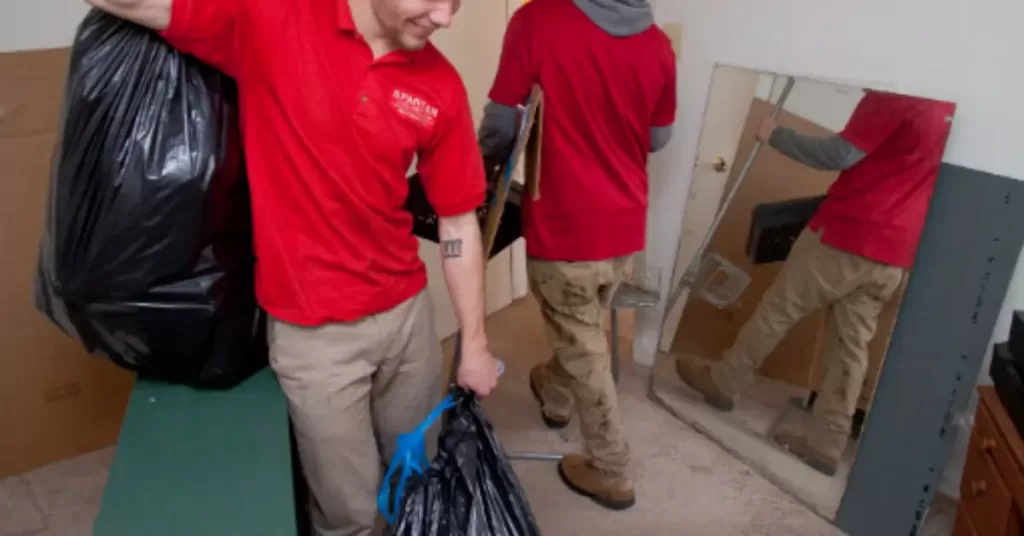
Handling leftover estate sale items doesn’t have to be overwhelming. Whether you sell, donate, or store, there are plenty of ways to eliminate unsold items.
If you need a stress-free solution, hire a professional estate cleanout service. They’ll handle everything from removal to disposal, making the process smooth and efficient.
Call us today to schedule a professional estate cleanout or junk removal service!
FAQs About Estate Sale Leftovers
What Sells Best at Estate Sales?
Antique dealers and bargain hunters often look for valuable items like jewelry, vintage furniture, and collectibles. High-quality household items, tools, and unique decor pieces also tend to sell well, as buyers look for both functional and decorative pieces at a good price.
What Is the Best Month to Have an Estate Sale?
Spring and summer tend to attract more buyers because of favorable weather, allowing for better turnout. However, well-marketed estate sales can be successful year-round, especially if promoted through online listings and local advertising.
What Is the Best Way to Advertise an Estate Sale?
Using online platforms like Craigslist, Facebook Marketplace, and estate sale directories can help attract serious buyers. Additionally, placing signs in high-traffic areas and reaching out to local estate liquidators or auction houses can increase visibility.
What Percentage Do Most Estate Sale Companies Take?
Most estate sale companies take between 30-50% of the total sales revenue as their fee, which covers setup, marketing, and the sale process. The percentage may vary based on location, the value of the items, and the level of service provided.


